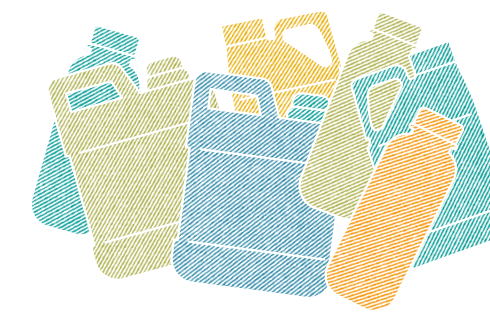The Covid-19 pandemic resulted in 2020 being one of the most challenging years in the History of humanity. Already in March, we mobilized an emergency committee to follow the pandemic impacts on the Campo Limpo System and, above all, ensure that everyone was protected. We quickly implemented a home office model for all inpEV headquarter employees and, with the support of Mapa (Ministry of Agriculture, Livestock and Food Supply) and the state secretaries of Agriculture, recommended all System receiving stations to operate at half their capacity. After a detailed analysis of the safety level at all central stations and outposts, 100% of our operations were resumed after 30 days. We defined new protocols, intensified communication about the disease and forms of prevention and also monitored closely the psychological impact of the pandemic on people, by providing a support channel for all System workers and their families.
The Campo Limpo System did not stop because Brazilian agriculture did not stop. Considered as an essential activity, it was in fact one of the pillars that sustained the country amidst the economic crisis intensified by the pandemic. The sector records reflected on our operation and required us to revise twice the annual disposal goal, an unprecedented fact for the System. In annually consolidated terms, our result exceeded the most up-to-date goal, set at disposing 49,500 tons. During the 12 months of 2020, we provided the environmentally proper disposal of almost 50,000 tons of empty post-consumption recipients.
Despite facing an atypical situation, we moved forward with strategic projects. This was the case of our integrated management model for the receiving stations, a widely discussed project that was approved by our Board of Directors, consisting of manufacturers and entities that represent all links of the agricultural chain. Started in 2019, this project gained momentum in 2020 - we reached 45 central stations managed by inpEV. During this period it was already possible to confirm the assertiveness of this model, calling attention to the gains in efficiency and process and health and safety programs standardization. In 2020, 30 central stations managed by the Institute were ISO 9001 certified, relative to quality management. This model benefits all links of the chain: farmers, distributors and cooperatives. Regarding distributors and cooperatives, for example, they are able to prioritize their businesses and still benefit from reducing their participation costs in the System.
Another highlight was the Improved Model for handling remains (empty packaging) becoming official, result of the work developed along several years by the Institute's team and third-party tax consultants. Implemented in January, 2021, the Improved Model allows remains handling to be quicker and without undue bureaucracy by substituting bills of sale by the SST document (Removal and Transportation Request). Our expectation is that the Improved Model be used by other sectors committed to reverse logistics within the country. We also advanced regarding traceability, which will allow us in the future to monitor the entire trajectory of a given empty container, starting from its delivery at a central station or outpost up to the manufacturing of a new item using this packaging, in accordance with the circularity precept.
In 2020, we reviewed inpEV's strategic planning for the next five years, with guidelines that will support us in achieving our vision, which is to be acknowledged worldwide as a center of excellence in the reverse logistics of empty plant health containers and in the area of agricultural solid waste, thereby becoming a reference in providing services and making the Campo Limpo System self-sustainable. All initiatives executed along the year address our vision. We continue to pursue self-sufficiency for the entire System and were able to generate resources that corresponded to around 65% of the Campo Limpo System cost in 2020. We also continue to showcase the success of our reverse logistics program in Brazil and across the globe.
As part of the DNCL (National Clean Field Day) celebrations, we collected more than 150 tons of food from our "Celebrate Achievements and Multiply solidarity" campaign, which were distributed to families and entities living close to the receiving stations. The Campo Limpo PEA (Environmental Educational Program) was adapted for a virtual environment and offered to 253,500 students. Furthermore, we trained teachers of the municipal schooling network of the city of São Paulo, which will allow us to contribute towards the environmental education of an even more significant numbers of students.
I would like to cease this opportunity to reiterate our support to the United Nations Global Compact, which inpEV has been a part of since 2019, and our commitment towards disseminating good practices in the areas of human rights, labor relations, environment, governance and the fight against corruption among all links of the agricultural productive chain and other stakeholders with whom we interact.
Finally, I would like to thank all farmers, distributors, cooperatives, manufacturers, recyclers, incinerators, authorities and all professionals that give life to the Campo Limpo System for their commitment and dedication. We reinvented ourselves in 2020 and undoubtedly our resilience was key for the System results.
João César M. Rando
inpEV CEO
